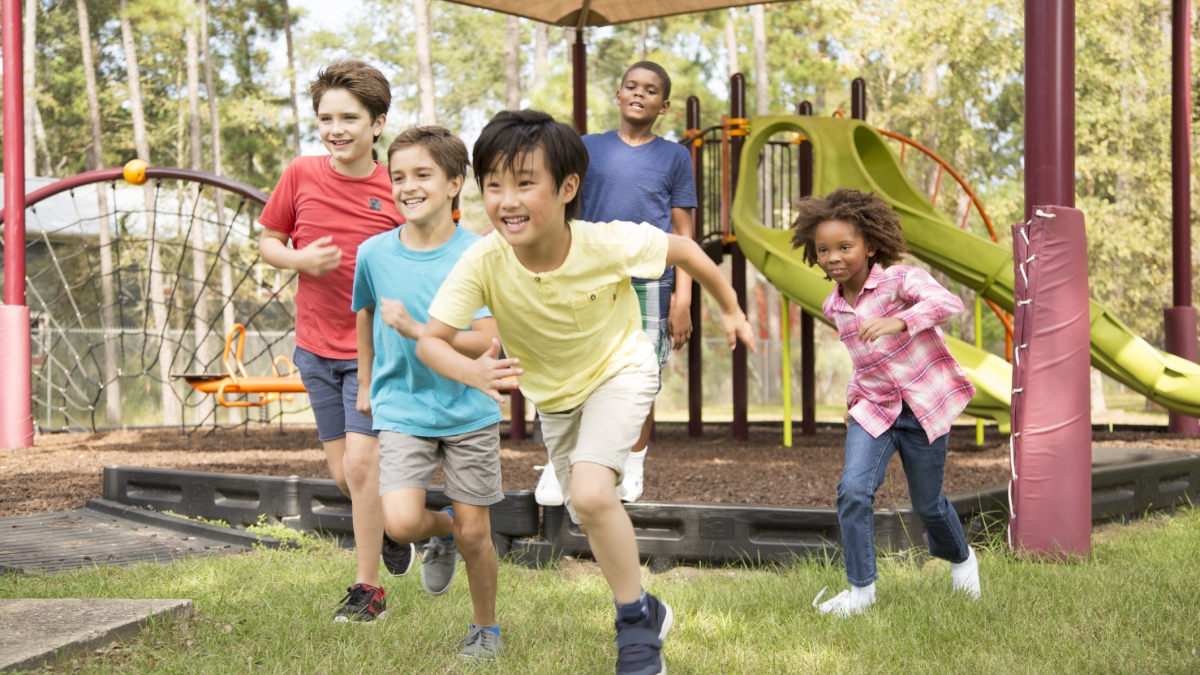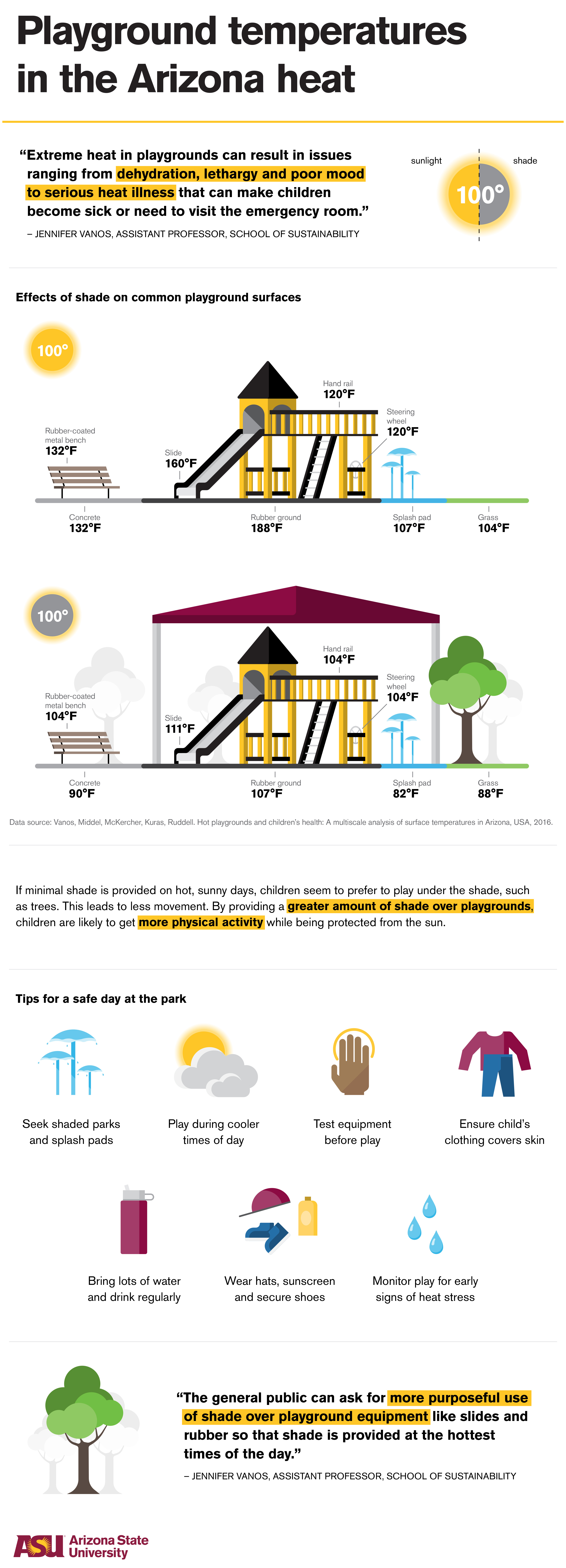Editor's note: As Arizona continues to battle COVID-19, please follow social distancing and face covering guidelines in public at all times, including playgrounds.
A day at the playground can be tempting on a bright sunny day, but in the Arizona heat, it can also be dangerous.
Children playing outside during Arizona summers can face 100 days or more of temperatures north of 100°F. Too often playgrounds use heat-retaining, unnatural surfaces in the middle of parks with no shade, especially in Phoenix. These unshaded playgrounds can act as mini heat islands, which can disincentivize physically active play or even lead to burns.
ASU urban climate researchers Jennifer Vanos and Ariane Middel believe proper shading of playgrounds may be a solution.
“Shade protects children from the sun and keeps playground equipment cool and touchable,” said Middel. Their research provides insight into these spaces, as well as tips on keeping children safe in the heat.
Infographic by Alex Davis/Media Relations and Strategic Communications
More Health and medicine
New Indigenous health dashboard offers robust database for scholars
By Nicole Greason and Kimberly Linn A team at Arizona State University’s College of Health Solutions and American Indian Studies program has created a new tool to aid researchers…
College of Health Solutions program doing its part during Salute to Service
It wasn’t always easy for Marine veteran Chuck Hale when he first returned to civilian life. But he’ll never forget the help he received from a fellow former service member.“The first vet that helped…

What makes human culture unique?
Why is human culture — the shared body of knowledge passed down across generations — so much more powerful than animal cultures?“What’s special about our species?” is a question scientists have…

